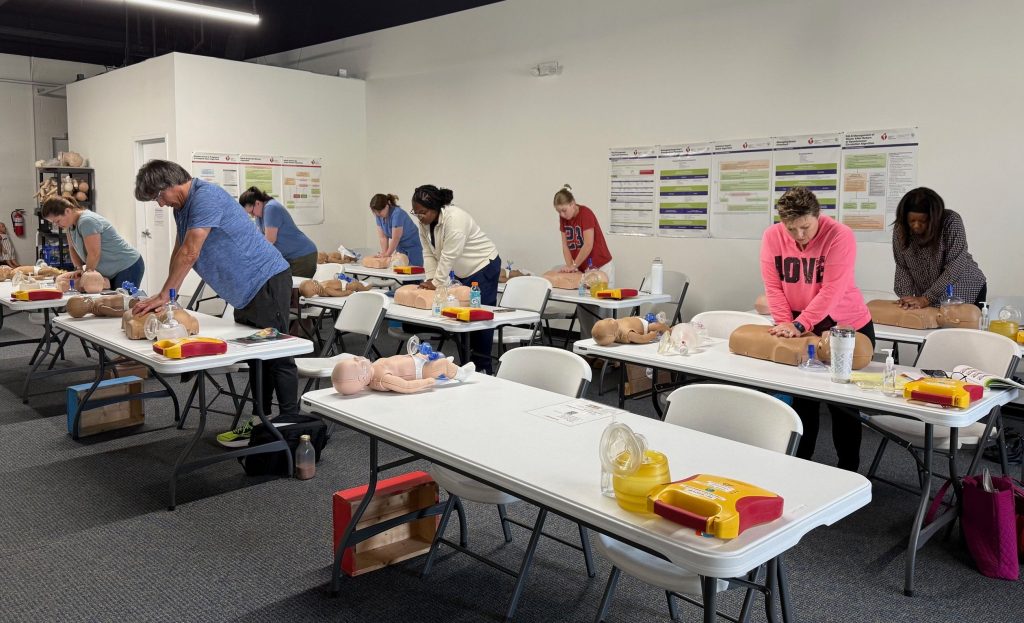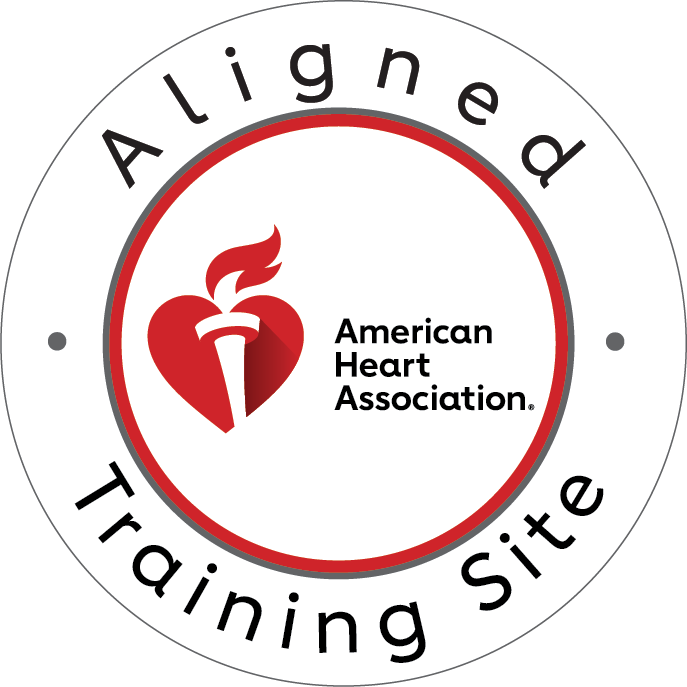Introduction to BLS and ACLS Certifications
As a healthcare provider, you may wonder whether it’s necessary to obtain both Basic Life Support (BLS) and Advanced Cardiovascular Life Support (ACLS) certifications. The answer largely depends on your specific role, workplace requirements, and personal career goals. In many clinical settings, both BLS and ACLS are recommended, if not required, for healthcare providers who need to respond confidently to critical medical situations. Let’s explore why both certifications are valuable, and how they can equip you to save lives effectively.
What is BLS? – Understanding Basic Life Support (BLS) Certification
Basic Life Support (BLS) certification is a foundational training course for healthcare providers. BLS equips medical staff with the skills to respond to basic emergencies involving cardiac and respiratory arrest.
- Course Content: BLS training covers high-quality CPR for adults, children, and infants, effective ventilation techniques, automated external defibrillator (AED) use, and critical teamwork skills.
- Skills and Competency: A BLS certification is essential for anyone working in patient care, as it ensures proficiency in CPR techniques and foundational life-saving skills.
- Certifications in Memphis: BLS certification Memphis programs, such as those offered by CPR Memphis, are designed to be hands-on and stress-free, providing a real-world feel to prepare healthcare providers for actual emergencies.
What is ACLS? – Understanding Advanced Cardiovascular Life Support (ACLS) Certification
Advanced Cardiovascular Life Support (ACLS) certification is an advanced training program designed for healthcare providers who manage severe cardiac and respiratory emergencies.
- Course Content: ACLS courses cover a comprehensive set of skills, including advanced airway management, electrocardiogram (ECG) interpretation, and pharmacology used in resuscitation and emergency care.
- Skills and Competency: ACLS certification emphasizes critical decision-making and complex life support measures, making it essential for healthcare providers who need to lead or assist in resuscitation efforts in a hospital or clinical setting.
- Certifications in Memphis: Programs offering ACLS certification Memphis emphasize hands-on, team-based training to prepare participants for high-stakes situations where advanced life-saving techniques are necessary.
Do You Need Both? – Analyzing the Benefits of Dual Certification
While BLS focuses on fundamental life-saving techniques, ACLS builds on these skills with advanced interventions and clinical decision-making. Both certifications complement each other, and many medical providers find that having both qualifications makes them more effective and confident in emergency scenarios.
Benefits of Having Both BLS and ACLS Certification:
- Increased Employability: Many healthcare employers look for candidates certified in both BLS and ACLS, particularly in hospitals and specialized care units.
- Preparedness: With dual certification, you’re equipped to handle a broader range of emergencies with both basic and advanced skills.
- Improved Patient Outcomes: BLS skills provide the groundwork, while ACLS techniques can further sustain life, reduce complications, and stabilize patients in critical conditions.
Who Should Take BLS and ACLS?
While both certifications are beneficial, some professionals may require them more than others:
- Nurses and Doctors: In most hospital settings, BLS is required, and ACLS is often highly recommended for RNs, NPs, PAs, and physicians.
- Emergency Medical Technicians (EMTs) and Paramedics: Given the critical nature of pre-hospital care, EMTs and paramedics benefit greatly from having both certifications.
- Allied Health Professionals: Respiratory therapists, physical therapists, and others who work with at-risk populations can also enhance their skill set and value to employers with dual certification.
The Differences Between BLS and ACLS Certifications
Understanding the differences between BLS and ACLS can help you determine the level of training you need.
| Certification | BLS Certification | ACLS Certification |
| Focus | Basic CPR and AED use | Advanced airway management, pharmacology, ECG interpretation |
| Audience | General healthcare providers | Professionals involved in emergency response |
| Training Length | Shorter, foundational skills | Longer, comprehensive life-saving techniques |
When Should You Choose BLS Certification Only?
For healthcare providers whose primary responsibility does not involve critical care, BLS certification may suffice. Examples include:
- Medical assistants
- Dental hygienists
- Home health aides
These professionals often find that BLS certification covers the essential CPR skills they need to provide initial emergency support effectively.
When is ACLS Certification Essential?
If your role involves high-stakes patient care, ACLS is often necessary. This includes:
- ICU Nurses and Cardiac Care Specialists
- Emergency Room (ER) Personnel
- Critical Care Paramedics
For such professionals, ACLS certification is invaluable, as it prepares them for advanced resuscitation protocols, drug administration, and handling complex emergency situations.
Why Combining BLS and ACLS Certifications Makes Sense for Healthcare Providers
A dual certification can provide healthcare providers with a complete toolkit to respond to any cardiac or respiratory emergency:
- Confidence and Skill Integration: BLS establishes core skills, while ACLS integrates these skills into advanced scenarios.
- Enhanced Patient Care: Equipped with both BLS and ACLS, providers can initiate immediate care and then move seamlessly into advanced resuscitation protocols, increasing the chance of positive patient outcomes.
The Importance of BLS Certification in Memphis
In Memphis, where health emergencies can range from community incidents to high-acuity situations in medical facilities, BLS certification is crucial for healthcare providers to ensure life-saving readiness.
- Community Impact: BLS-certified professionals can respond swiftly to sudden emergencies, providing critical CPR and AED support.
- Career Value: BLS certification in Memphis signals a commitment to life-saving skills, making it valuable to employers seeking reliable, trained staff for their clinical settings.
The Need for ACLS Certification in Memphis
With the high demands of hospitals and urgent care facilities, ACLS certification enables healthcare providers to handle critical emergencies with an advanced skill set.
- Professional Recognition: ACLS certification Memphis programs ensure that providers meet American Heart Association (AHA) standards, which are recognized and respected across healthcare institutions.
- Career Advancement: Holding an ACLS certification can open doors to specialized, higher-paying positions in hospitals, emergency rooms, and critical care units.
Benefits of CPR Memphis for BLS and ACLS Training
As an American Heart Association training site, CPR Memphis offers a trusted, hands-on, stress-free training experience for both BLS and ACLS certifications.
- Experienced Instructors: CPR Memphis instructors bring real-world healthcare experience, enhancing the training quality.
- Flexible Scheduling: Classes are available at various times to fit your busy schedule.
- Comprehensive Training: CPR Memphis ensures you receive AHA-compliant, hands-on practice, preparing you for any medical emergency confidently.
What to Expect in BLS Certification Memphis Classes
The BLS certification classes at CPR Memphis provide interactive, practical training in:
- High-quality CPR techniques
- AED usage
- Team dynamics and communication skills
- Effective ventilation practices
What to Expect in ACLS Certification Memphis Classes
CPR Memphis ACLS certification classes cover advanced skills, including:
- Airway management techniques
- Cardiac pharmacology for emergency use
- ECG interpretation and rapid response protocols
- MegaCode team-based simulations to build collaborative, responsive skills
Call to Action: Enhance Your Skills with CPR Memphis
Are you ready to elevate your emergency response skills? Join CPR Memphis, an American Heart Association training site that provides BLS certification Memphis and ACLS certification Memphis courses tailored for healthcare professionals. Gain hands-on experience, improve patient outcomes, and make a life-saving difference in your career.





